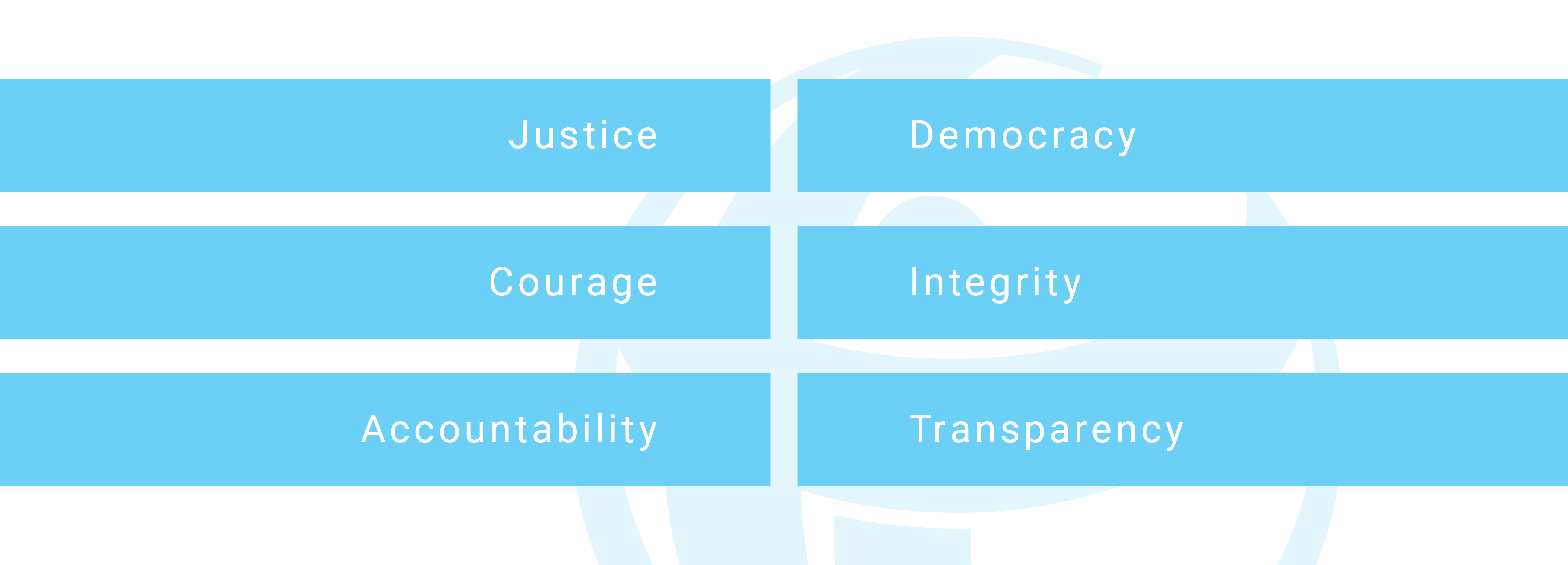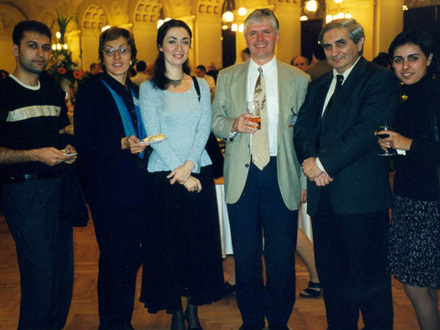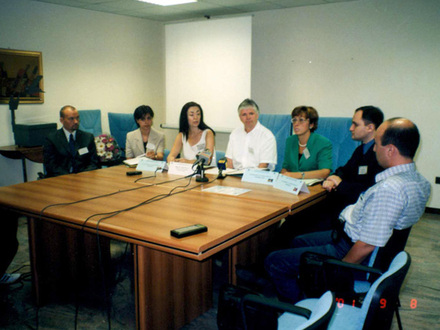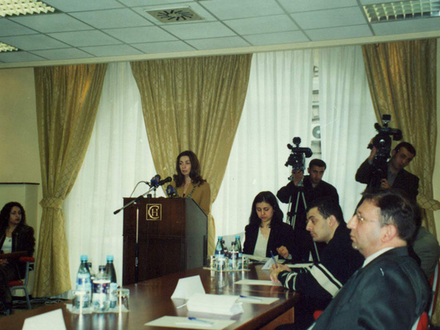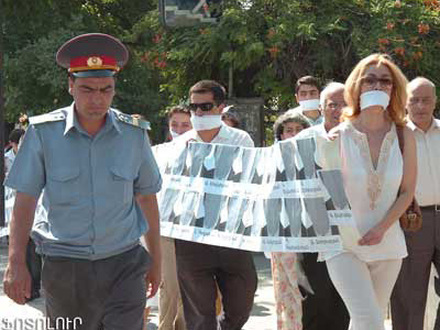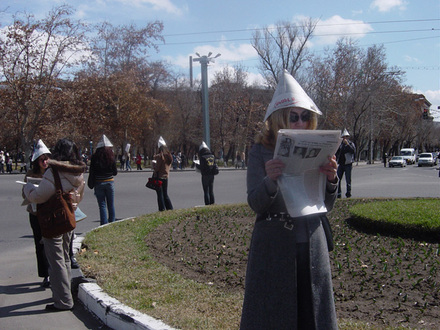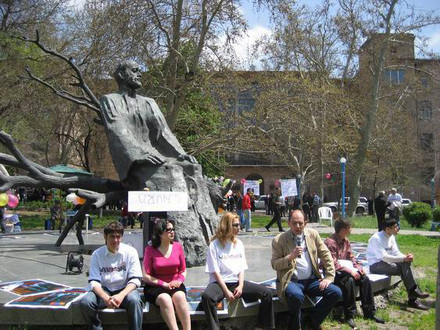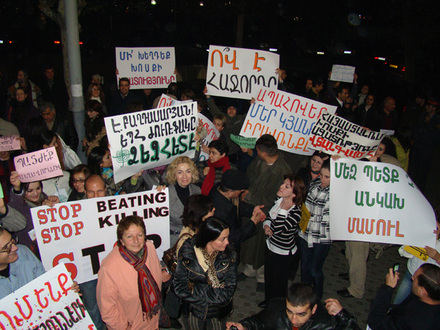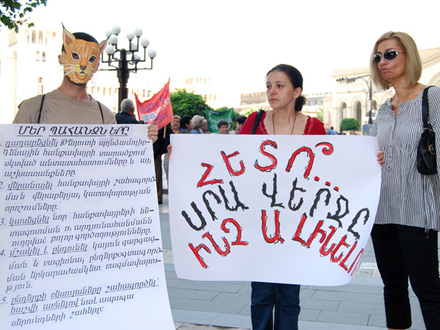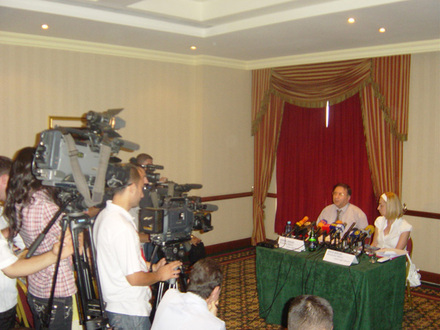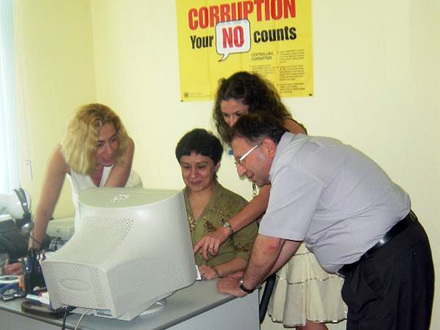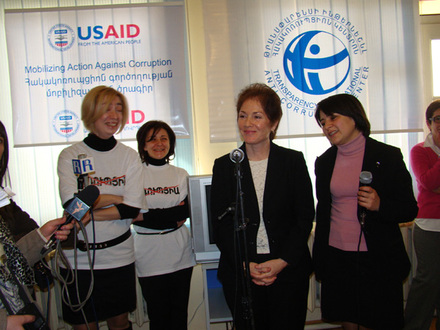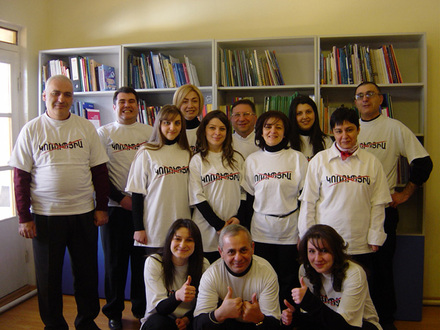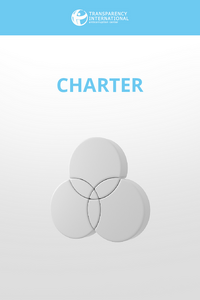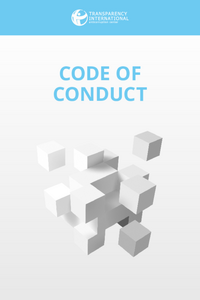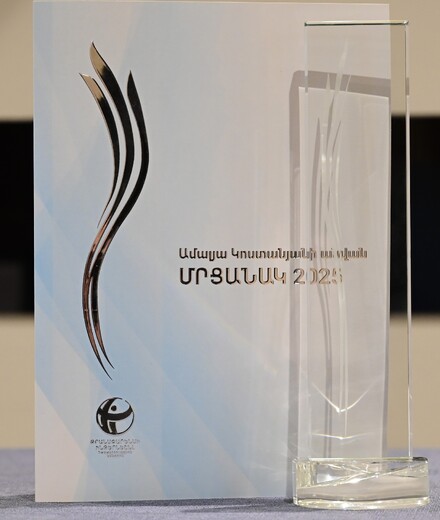History
Transparency International Anti-Corruption Center (TIAC) NGO was established in 2000 by Amalya Kostanyan (1960-2010) carrying the name of the Center for Regional Development NGO, aiming to promote political, economic and social reforms in Armenia and the region.
Due to its active endeavors towards the good governance, within one year in October 2001 the organization became the accredited National Chapter of Transparency International (TI) - the global anti-corruption movement. From 2008, the NGO was reregistered and renamed as Transparency International Anti-corruption Center (TIAC).
Until September 2010 TIAC was led by Amalya Kostanyan. According to TI Chair Hughet Label, it was Amalia's vision, passion and stamina that made TI Armenia a strong voice in the country and beyond. In October 2010, the organization was granted a certificate by TI Secretariat in recognition of the 10 years of loyal service in the fight against corruption.
During its 20 years of operation, TIAC has become the main watchdog NGO in Armenia in the field of good governance and fight against corruption.
Mission
TIAC mission is to promote good governance and democratic processes to contribute to strong statehood and a corruption-free Armenia.
Goals
The goals of the organization are:
- Prevent corruption by promoting transparency, accountability and integrity of governance processes
- Promote the rule of law by pursuing proper law enforcement, establishment of justice and protection of human rights
- Protect public resources through responsible management of public property and finances and promoting the efficiency of public services
- Promote integrity in politics by supporting free, fair elections, and the improvement of the political system
- Promote civic leadership by disseminating knowledge, protecting the civic space and creating opportunities for public engagement
Approaches
TIAC pursues cooperation with government institutions on initiatives which promise of positive impact on ongoing reforms or promote new policies, and manifests a principled opposition to decisions or actions of the government that clearly threaten good governance in the country.
The organization's efforts are directed to bringing systemic changes at the local and national levels rather than dealing with individual advocacy. This systemic approach is based on the National Integrity System.
Effective coalitions and alliances with other civil society groups, academia, media, international organizations play a key role for presenting the organization's position to policy makers and lobbying for policy change.
Values
